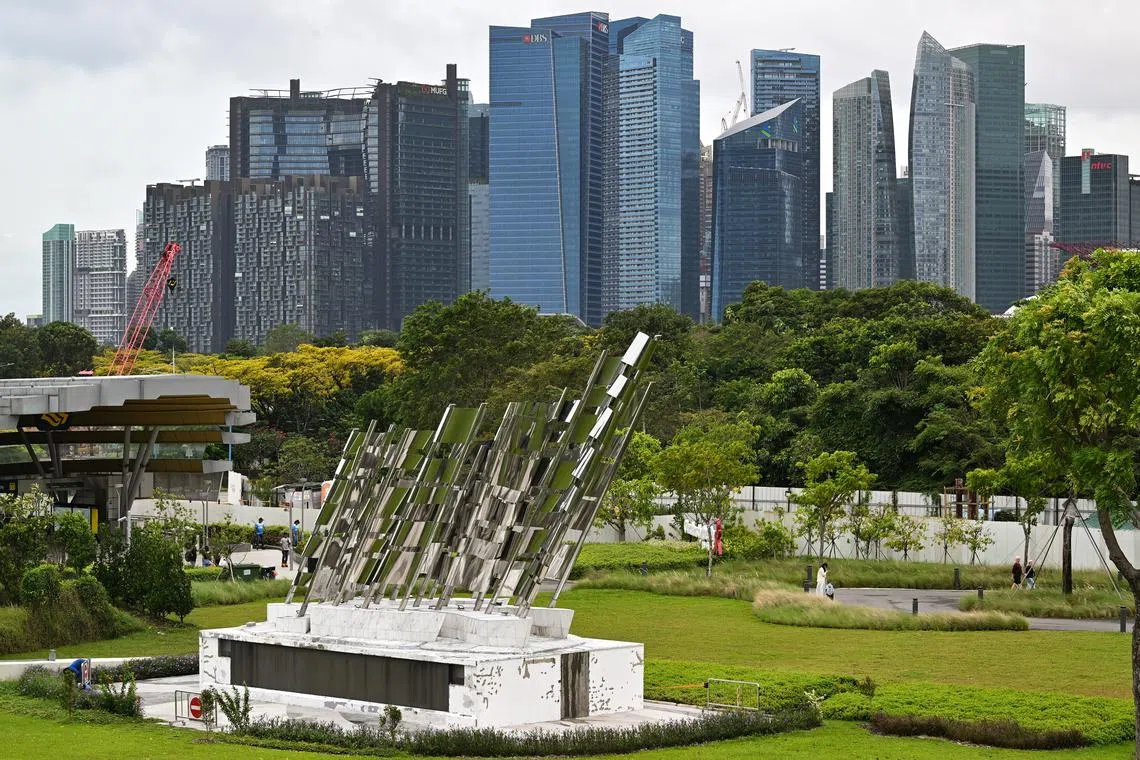Govt must continue to lead Spore’s march to decarbonisation, says advisory panel
Sign up now: Get ST's newsletters delivered to your inbox

Singapore must play a leading role when it comes to decarbonising its power sector.
ST PHOTO: LIM YAOHUI
SINGAPORE – The Government of Singapore must continue to play a leading role in setting policies and priorities for decarbonising its power sector, and ensure the energy market here remains dynamic, efficient and reliable.
This was recommended by the 8th International Advisory Panel (IAP) on Energy after it concluded a two-day meeting on Friday held on the sidelines of the Singapore International Energy Week.
The IAP discussions were chaired by Second Minister for Trade and Industry Tan See Leng and attended by about a dozen energy executives and thought leaders from around the world.
The panel noted that the energy transition is a complex process with significant uncertainties, hence net-zero emission targets and decarbonisation plans must be championed by political leaders and effectively implemented by policymakers.
The energy transition will change Singapore’s power sector from one with homogenous generation sources to one where different generation sources – for instance natural gas, solar, wind and hydropower – compete alongside one another, each with its own cost structures, operating models and supply profiles.
Therefore, IAP encouraged the Government to retain its leadership in determining the optimal energy mix; setting the guideposts, timelines and pathways for getting to net-zero emission
Recognising that efficient markets foster healthy competition and innovation by the private sector, the IAP advised that investors will require greater visibility and certainty that their investments can generate sufficient financial returns.
To ensure that Singapore’s energy market remains dynamic, efficient and reliable, the IAP recommended the Government to consider market mechanisms that will buttress investor confidence through de-risking while retaining incentives for private sector innovation and competition.
The IAP agreed with the Government’s approach to proactively study all viable decarbonisation pathways that may be suitable in Singapore, including regional energy imports, domestic solar deployment and hydrogen.
The panel also supported Singapore’s approach of embarking on small-scale pathfinders to validate the feasibility of newer low-carbon technologies, as well as to obtain greater certainty on deployment and operating costs.
It also recommended that Singapore should press on with building up capabilities to understand advanced nuclear technologies such as small modular reactors, and advised the monitoring of developments in advanced geothermal systems, fusion energy and biofuels.
Lastly, the IAP recommended that Singapore develop a robust research and development portfolio of low-carbon energy technology projects with local and international partners, with a focus on improving the commercial viability of energy solutions that could be deployed in Singapore.
The IAP noted that the crisis management measures introduced, with guardrails implemented by the Government over the past two years, have stabilised Singapore’s energy market.
The panel also observed that the Government’s move to centralise gas procurement was appropriate, since natural gas will remain an important part of Singapore’s energy mix for the foreseeable future. These measures will give Singapore a firm foundation to press on with its decarbonisation plans, it said.



